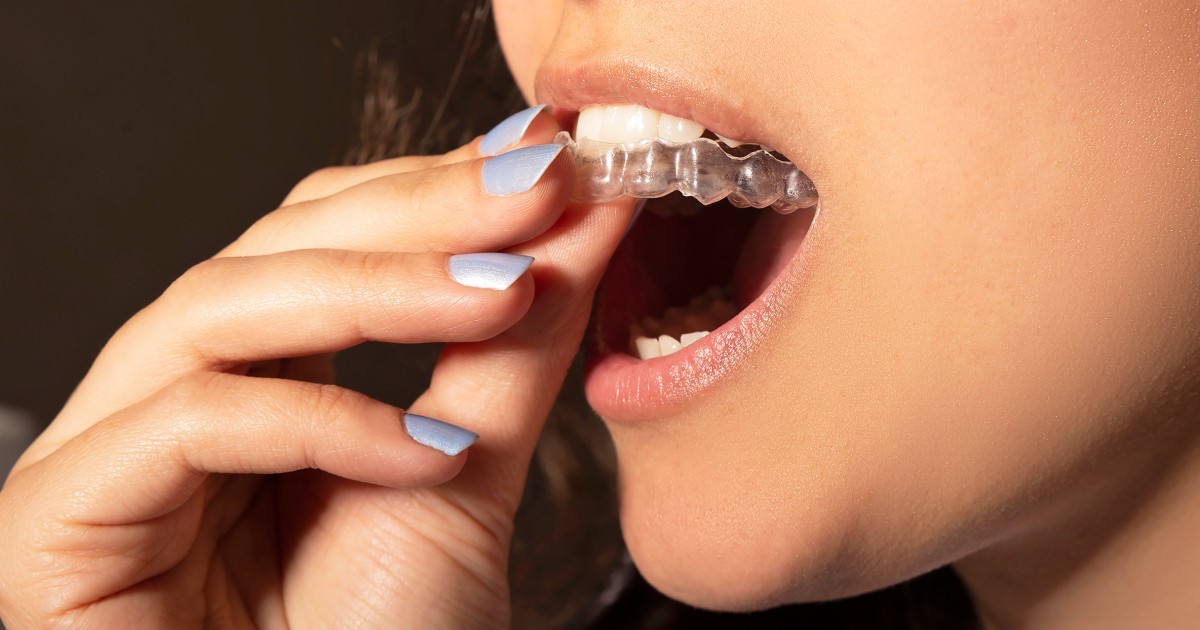I’m a dentist. Here are 5 things I never do to my teeth

For many people, dental health remains a mystery. How many times a day should you brush? Do you need a fancy whitening treatment? Is flossing really that important?
Dental health is so much more than having pearly white teeth, and knowing how to properly care for them can make a huge difference.
“Half of Americans over the age of 30 have gum disease, and now statistics are showing younger and younger people dying of heart attack and stroke who had no history,” Dr. Sharon Huang, founder of Les Belles NYC Dentistry in New York City, told TODAY, adding that bacteria in the mouth can lead to inflammation, which can increase risk of heart attack.
Huang shared with TODAY the five things she never does to her own teeth as a dentist.
1. Never skip flossing
Not flossing is “like taking a shower without any soap. It’s impossible to keep bacteria at bay without flossing,” she said. “Over time, this bacteria develops into a smelly inflammatory monster.”
While bad breath sounds awful enough, lingering bad bacteria can do real damage.
“It aggressively eats the gums and bones that support the teeth and travels through the bloodstream to other parts of the body to start attacking the organs,” Huang says. “The No. 1 thing you can do to reduce your risk for heart attack, stroke, diabetes and other inflammation related disease is to floss daily.”
2. Never drink carbonated drinks without a straw
Many people enjoy seltzer water, especially with the variety of flavors available. But carbonated drinks can harm the teeth.
“Bubbly beverages are highly corrosive to your teeth,” she says. "That’s going to cost you a lot of money in my dental chair down the road."
Is there hope for those devoted to their seltzers? Yes, it comes in the form of a straw.
“Drink it through a straw and then rinse with water right away to help neutralize the pH,” Huang says. “If you sip, you’re giving your teeth an acid bath to erode the enamel.”
3. Never get fooled by whitening gimmicks
Many people think they need expensive whitening kits with blue lights to remove stains on teeth. But those products might not work as well as people hope and could even cause some damage.
“The light is a visual decoy. The heat dehydrates the teeth, making them appear white immediately,” Huang said. “But once the teeth rehydrate, the color comes back.”
Even whitening toothpastes can be harmful.
“Many of them have abrasive ingredients that scrub stains but also remove your enamel,” she explained. “Your teeth appear brighter but with long-term damaging effects.”
The American Dental Association recommends using toothpaste and whitening strips that have the ADA Seal of Acceptance on them, which means they’re safe and work.
4. Never use at home teeth aligners
Most people wouldn’t set their broken ankle themselves. The same is true for orthodontic adjustments.
“We shouldn’t be moving around body parts without supervision,” Huang said. “I have to fix so many at-home orthodontic disasters.”
In some cases, patients who used at-home aligners can lose bone or need to have their teeth pulled because no one was addressing complications as they arose.
“Sometimes your front teeth might look nice, but then your back teeth don’t come together,” she says. “It’s uncomfortable to chew or talk because the whole bite is off.”
Huang recommended people leave teeth alignment to the professionals and see a dentist or orthodontist instead.
5. Never brush right after eating
Surprisingly, teeth are soft and brushing right after eating can wreck the enamel.
“Right after you eat, the pH in your mouth drops because the enzymes have started the process of digestion. This continues for 30 minutes,” she says. “Wait 30 minutes after eating before brushing.”
If you want a fresher feeling mouth before the time elapses, Huang recommends rinsing with water.